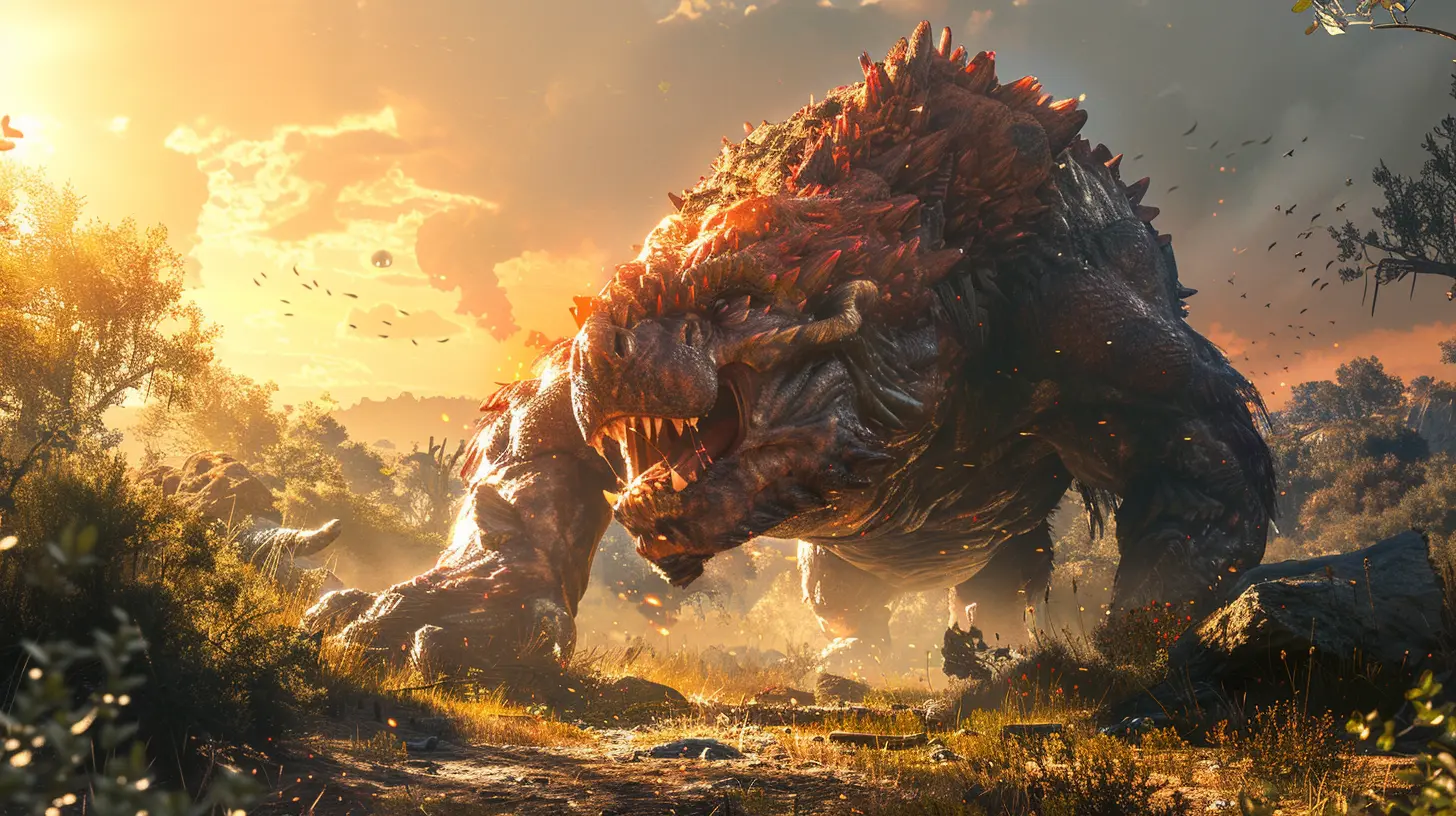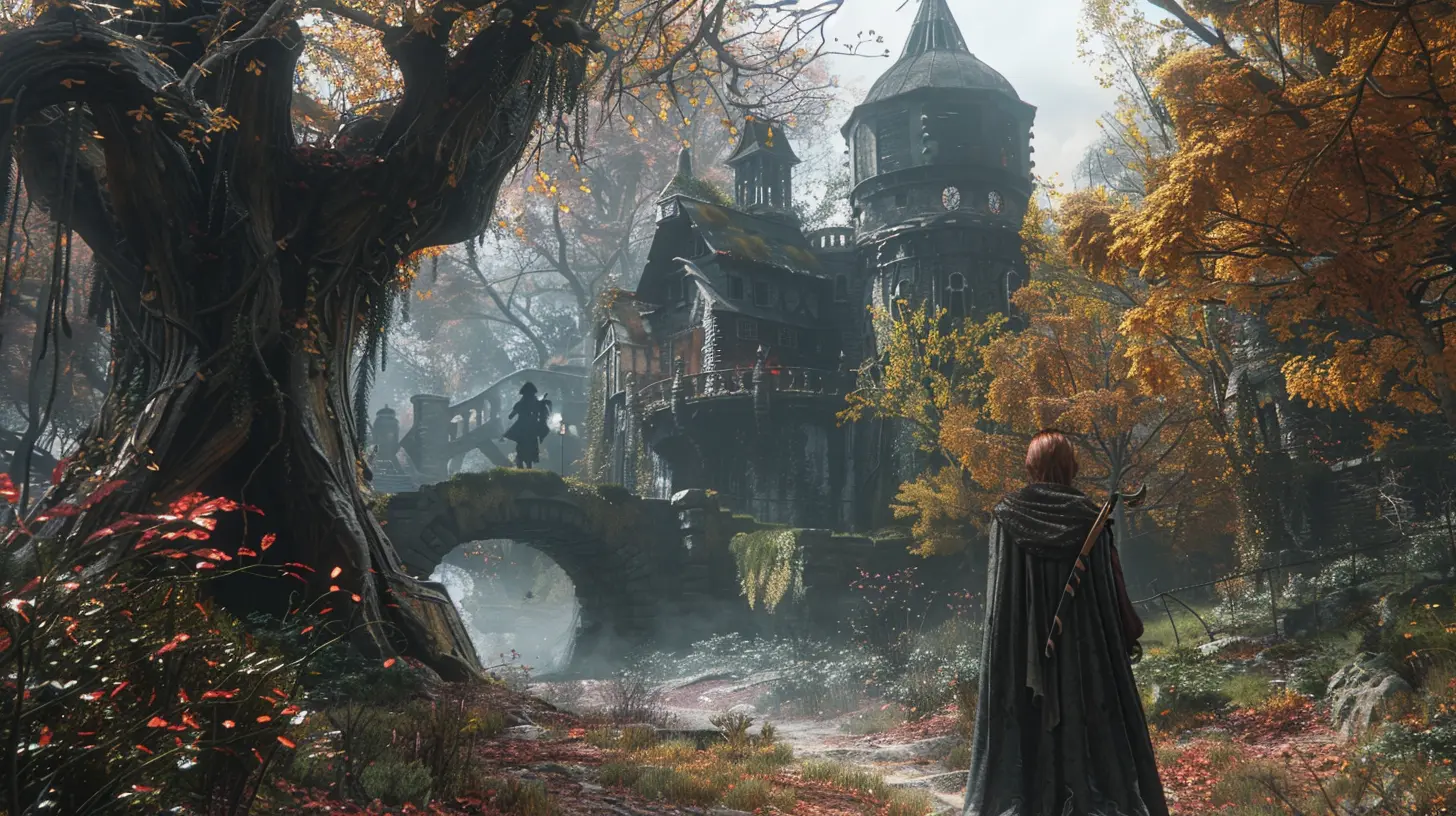Single Player Games with Dynamic Storylines That React to Your Choices
26 February 2025
Video games have come a long way from the simple days of Pong and pixelated adventures. Players now crave immersive experiences, not just impressive graphics or action-packed sequences. One of the most exciting shifts in gaming has been the rise of single-player games with dynamic storylines that actually respond to your choices.
You know that feeling when your decisions directly impact the world around you? It’s like being the author of your very own epic novel, except the plot unfolds on your screen. These "choice-driven" games blur the line between player and storyteller, letting you carve out unique paths every time you play. In this article, we’ll dive into some of the most incredible single-player games in this genre, how they work, and why they’ve got gamers hooked.
What Makes Choice-Driven Games So Special?
Before we hop into specific titles, let’s talk about why these types of games are so universally loved. Choice-driven games offer what many linear titles simply can’t: agency. Instead of following a set script, you steer the story in whichever direction feels right to you.Imagine you’re in a game where you have to decide whether to save someone or let them fend for themselves. Your decision might result in that character sticking around to help you later, or it could lead to devastating consequences down the line. It’s like a domino effect where one choice can ripple through the entire game.
These games thrive on player engagement because they’re personal. They let you make tough calls, live with the consequences, and see how those choices play out. It’s gaming, but with an emotional twist—kind of like binge-watching a Netflix drama, except the plot twists depend entirely on you.
The Dynamic Storylines: How Do They Work?
Here’s the magic behind these games: branching narratives. Developers create multiple story arcs, often with divergent outcomes, to accommodate the decisions you make. These games almost function like highly complex "choose-your-own-adventure" books, but on steroids.Sophisticated AI and scripting allow the game to track your decisions, tweaking dialogues, relationships, or even entire missions based on your actions. Some games are subtle with these changes, while others are unapologetically bold. One wrong step, and you could lose an ally or trigger a completely different ending.
The beauty is, no two playthroughs are ever the same. You might play a storyline where you’re the compassionate hero, and then replay it as the ruthless antihero. Either way, the experience feels fresh.
Must-Play Single Player Games with Dynamic Storylines
Alright, enough chit-chat. Let’s get into the heart of the matter. Here’s a list of some jaw-dropping single-player games that reward you for your choices and pack powerful storytelling punches.1. The Witcher 3: Wild Hunt
Okay, this one is a no-brainer. If you haven’t already heard about The Witcher 3, where have you been? This powerhouse RPG is the gold standard for games with dynamic storylines.You play as Geralt of Rivia, a monster-hunting mercenary, and the choices you make throughout the game heavily influence the world around you. From choosing who to ally with to deciding how to handle morally ambiguous quests, your decisions matter. With over 36 possible endings, the replay value is insane. You could spend hundreds of hours exploring every option, and trust me, people do.
Plus, let’s not forget the emotional weight of this game. Do you spare someone because it’s the "right" thing to do, or do you take the practical route for a bigger reward? It’s a constant tug-of-war between your conscience and your goals.
2. Mass Effect Series
Anyone who’s played Mass Effect (especially the original trilogy) will tell you: the choices carry some serious weight.This sci-fi RPG puts you in the shoes of Commander Shepard, a soldier trying to save the galaxy from an ancient alien threat. Your decisions here go beyond just affecting a single game—they actually carry over to the sequels!
Do you save one of your crewmates over the other? How do you handle intergalactic diplomacy? Relationships, alliances, and even the fate of entire species hinge on your actions. It’s storytelling on a massive scale, and every decision feels like it could make or break the universe.
3. Detroit: Become Human
At its core, Detroit: Become Human is a story about androids struggling for autonomy in a near-future world. But it’s not your typical "robots vs. humans" tale.The game follows three android protagonists, and every choice you make affects their fates—and, in some cases, the entire city. Will you spark a peaceful revolution, or go down a more violent path? Will your characters survive, or will they meet tragic ends?
What’s mind-blowing is how much freedom the game gives you. There are dozens of endings, and the branching paths make each playthrough feel deeply personal. It’s almost like playing through an interactive sci-fi movie where you call the shots.
4. Life is Strange Series
If drama-packed, emotional storytelling is your jam, then Life is Strange needs to be on your playlist.These games focus more on character relationships and personal choices rather than saving the world or fighting epic battles. You’ll tackle gut-wrenching dilemmas like who to trust, who to save, and what truths to uncover.
For example, in the first game, your ability to rewind time lets you "redo" decisions, but this adds an entirely new layer of complexity. Does changing the past make things better, or does it lead to more problems down the line? The consequences are often bittersweet, making this series a rollercoaster of emotions.
5. Until Dawn
Horror fans, this one’s for you. Until Dawn combines choice-driven storytelling with slasher-movie vibes.Set in an isolated mountain lodge, the game follows a group of friends being tormented by mysterious forces. Every choice determines who lives and who dies. Do you split up to cover more ground, or stick together? Do you brave the dark basement or stay put?
The game uses something called the "butterfly effect" mechanic, where even the smallest decisions can lead to massive, sometimes horrifying, outcomes. It’s like directing your own horror movie, complete with jump scares and plot twists.
6. Disco Elysium
On the surface, Disco Elysium is a detective RPG where you have to solve a murder mystery. But underneath lies one of the most complex, choice-driven experiences in gaming.Your character is a deeply flawed, amnesiac detective, and the choices you make shape not only the investigation but also your personality. You might focus on being a methodical professional, or you could lean into your less-than-ethical tendencies.
What’s truly unique here is how your inner dialogue plays a massive role. Your own thoughts can influence your decisions, making this a cerebral, almost philosophical experience. The writing is top-notch, and the branching narrative ensures you’re always discovering something new.
7. Heavy Rain
Another gem from Quantic Dream (the developers of Detroit: Become Human), Heavy Rain is an emotional thriller about a serial killer known as the Origami Killer.The game follows four characters whose lives intertwine as they try to uncover the killer’s identity. Your choices dictate not just the plot but also who survives—and, ultimately, whether or not justice is served.
What makes this game stand out is its cinematic approach. Every quick-time event and dialogue option feels tense and weighty, keeping you on the edge of your seat the whole way through.
Why These Games Keep Us Coming Back
Let’s be real: These kinds of games stick with you long after you’ve finished them. Why? Because they make you think. They force you to weigh choices and accept the consequences, no matter how uncomfortable or rewarding they may be.It’s not just about playing a game—it’s about experiencing a story that feels tailor-made for you. And the best part? When you try it again, you can make completely different decisions and uncover new plot points. It’s like rewatching a movie, but with alternate endings every time.
Final Thoughts
Single-player games with dynamic storylines are perfect for anyone who loves getting fully immersed in a narrative. They offer a level of depth and engagement that’s hard to find anywhere else. So if you’re ready to lose yourself in a story where your choices really matter, pick up one of these games. Just don’t blame me if you spend the next 100 hours glued to your console or PC!all images in this post were generated using AI tools
Category:
Single Player GamesAuthor:

Aurora Sharpe
Discussion
rate this article
7 comments
Heather Fletcher
Ah, single-player games with dynamic storylines—like a choose-your-own-adventure book, but with fewer paper cuts and way more existential crises! Who knew my decision to pet the dragon would lead to an awkward family dinner with the villagers?
March 25, 2025 at 6:03 PM

Aurora Sharpe
Absolutely! It’s amazing how our choices can lead to such unexpected—and often hilarious—repercussions in single-player games.
Jillian McClary
Dynamic storylines in single-player games are like a choose-your-own-adventure book that knows you better than you know yourself—each choice feels personal, making every playthrough uniquely unforgettable!
March 13, 2025 at 3:36 AM

Aurora Sharpe
Thank you! I completely agree—dynamic storylines truly enhance the immersive experience, making each player's journey feel personal and memorable.
Alexa McGarvey
Making choices? Just like life, but with fewer awkward family dinners!
March 9, 2025 at 4:01 PM

Aurora Sharpe
Absolutely! Choices in games can be a fun way to explore different narratives without the family drama!
Coral Wheeler
Why settle for a predictable bedtime story when you can dive headfirst into a world that actually listens? These games don’t just react; they serve up plots that make your choices feel deliciously impactful. Yum!
March 8, 2025 at 5:13 AM

Aurora Sharpe
Absolutely! Dynamic storylines in games truly elevate the experience, making every choice feel meaningful and engaging. It's like living your own adventure!
Thornefield McCord
Dynamic storylines in single-player games create immersive experiences, enhancing player agency and emotional investment, ultimately leading to more memorable narratives.
March 2, 2025 at 3:39 PM

Aurora Sharpe
Thank you! I completely agree—dynamic storylines truly elevate single-player experiences by allowing players to shape their narratives, fostering deeper connections and unforgettable moments.
Madalyn McVey
Great article! Dynamic storylines in single-player games truly enhance player immersion and engagement. It's fascinating how our choices can significantly shape the narrative experience. Looking forward to more insights!
March 2, 2025 at 4:11 AM

Aurora Sharpe
Thank you! I'm glad you enjoyed it. Dynamic storylines really do elevate the gaming experience. Stay tuned for more insights!
Finnegan McVey
This article beautifully highlights the immersive power of single-player games with dynamic storylines. The ability for narratives to evolve based on player choices not only enhances engagement but also personalizes the gaming experience, making each playthrough uniquely fulfilling. Great read!
March 1, 2025 at 4:48 AM

Aurora Sharpe
Thank you for your thoughtful feedback! I'm glad you appreciated the article and the impact of dynamic narratives in single-player games.
MORE POSTS

Deep Storylines: What Makes a Single Player Game Truly Memorable

Nostalgia or Innovation? What Modern Platformers Get Right

Game-Like Learning: What Educational Games Can Learn from Entertainment Games

How to Use Steam Reviews to Find the Perfect Game for You

From Arcades to Consoles: Games that Made the Jump

Horror Games with Time Travel: When the Past Haunts the Present